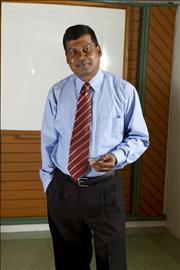The ensuing elections in Fiji will be a test for democracy and just successfully the country can establish widely accepted tenets of a popularly elected Government would depend on the parties involved and most importantly, the people themselves.
Fijians will go to polls on September 17, 2014 and would choose candidates from five parties (registered at the time of writing) hoping that their choice would be the right one. For, the future of Fiji as a nation free of race, religion, inequality, corruption and poverty would depend on the party voted to power.
Campaigning has begun in various parts of the country and as each Party makes its claims, the voting public must exercise their franchise in their best interests.
The coup that Josaia Voreqe Bainimarama staged on December 5, 2006 to oust the Laisenia Qarase Government and put in place a military regime received condemnation from many members of the Commonwealth including Australia and New Zealand but there was wide approval from the Fijian people both inside and outside the country.
Trinity of factors
There were three main reasons for such positive public response – abolition of a race-based society and electoral system, a new Constitution that placed all Fijians equal and the promise to root out corruption that had become endemic in Fiji.
Patience was wearing thin among his powerful neighbours but Mr Bainimarama took his time to establish a People’s Charter and put in place a Constitution that would ensure not only equal rights and opportunity and justice is available to all but also a democratic system that cannot be tampered with in the future.
His supporters argue that elections, first scheduled to be held in 2009 had to be postponed since Fiji was not ready for polling. Mr Bainimarama argued then that while elections are central to democracy, they are not always, on their own, a magic or quick-fix solution.
“How can an election, on its own, make a difference when it is based on divisive and race based communal electoral arrangements? How can an election, on its own, solve the deep differences that our constitution has perpetuated between the different races in our country? Unless there are fundamental reforms, how can an election succeed and guarantee that it will not take us straight back to the grimy old politics of self-interest, cronyism and scam mongering?”
Fiji First Party
In establishing his own political party and naming it ‘Fiji First,’ Mr Bainimarama has signalled to the world that a Government under this Party would value and promote the sovereignty, integrity and self-respect of the country and its people. He also promised that if elected, he would continue with economic and social reforms, address major challenges such as looming poverty, raising standards of education, health and public utility services and eradicate corruption totally from the public sector.
He said that he is passionate about a Fiji in which every Fijian, regardless of religion, race, ethnicity, status, colour, gender and creed is considered equal; where every Fijian is put first in relation to collective progress, success and growth as a nation.
“My political movement and I are getting ready to take each one of you on a journey, whether you be a commoner or a chief; a shop keeper or a consumer; a landowner or a farmer; an office worker or a labourer; a woman or a man; a pensioner or a youth; a city dweller or someone living in our maritime or rural areas. We have to travel together to become the pride of the Pacific and the world,” he said.
NDP speaks out
Professor Biman Prasad (Head of Faculty & Business at the University of South Pacific), who took charge as Leader of National Federation Party (NDP) recently said that since its formation 50 years ago, his Party has stood for universal freedom and equality.
“We have championed this in our good days when we were well represented in Parliament and promoted these values when we were not represented in Parliament. This is not fad for our Party. It is not a fashion statement to get for media sound-bytes. This belief in fundamental rights and freedoms defines who we are,” he said.
 Dr Prasad said that Fiji will make irreversible social and economic progress when its citizens are free.
Dr Prasad said that Fiji will make irreversible social and economic progress when its citizens are free.
“Their organisations including trade unions they belong to are not free; the media on which they depend on are not free. We have fought for these rights in 1950s, 1960s, after the coups of 1987 after the upheavals of 2000 and after the coup of 2006.
“We will continue fighting to restore our freedoms. Fighting for these freedoms is in our DNA,” he said.
Such strong views will continue to be read and heard as the election fever picks up in Fiji and as the names of candidates are made known in the coming weeks.
Nation at crossroads
In theory, votes should be decisive. People are consulted, a new government is formed; the losers accept the result and political discussions begin again on a new basis and the government and the nation carry on until it is time to poll again.
Elections, in fact, are just one part of the network of institutions (like honest courts) that need to be in place for democracy to work properly.
Without those institutions, voting sometimes seems, at least in the short term, to make things worse.
Fiji is today at the crossroads of destiny. There is a clear road sign to democracy with assured equality and progress and a one-way street to uncertainty and chaos.
Fijians must vote sensibly and put in place a Government which they believe would keep them happy and united, promoting democratic ideals of equality and transparency.






